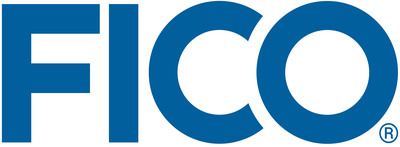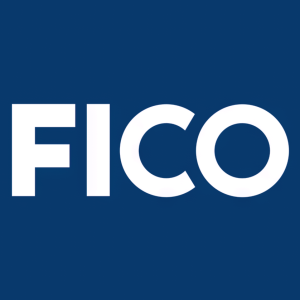New Report from Corinium and FICO Finds that Lack of Urgency Around Responsible AI Use is Putting Most Companies at Risk
Rhea-AI Summary
FICO and Corinium released the State of Responsible AI report highlighting significant gaps in AI governance. It found that 65% of organizations cannot explain AI model decisions, and 73% struggle to obtain executive support for AI ethics. Alarmingly, only 20% actively monitor AI for fairness. The study surveyed 100 C-level executives, revealing a concerning lack of understanding of AI ethics within leadership. Despite the rise in AI tool usage, 49% reported increased resources for AI projects, yet only 39% prioritized AI governance.
Positive
- 49% of companies increased resources allocated to AI projects.
- 63% believe AI ethics will become central to their strategy within two years.
Negative
- 65% of companies can't explain AI model decisions.
- 73% struggle to gain executive support for AI ethics.
- Only 20% actively monitor AI models for fairness.
- 43% have no responsibilities beyond regulatory compliance for AI management.
News Market Reaction 1 Alert
On the day this news was published, FICO gained 1.26%, reflecting a mild positive market reaction.
Data tracked by StockTitan Argus on the day of publication.
SAN JOSE, Calif., May 25, 2021 /PRNewswire/ --
Highlights:
- FICO and Corinium today released its second annual executive research report on Chief Analytics, Chief AI, and Chief Data Officers
65% of respondents' companies can't explain how specific AI model decisions or predictions are made73% have struggled to get executive support for prioritizing AI ethics and responsible AI practices- Only a fifth (
20% ) actively monitor their models in production for fairness and ethics
Today, FICO, a global analytics software firm, released its State of Responsible AI from market intelligence firm Corinium which found that despite the increased demand and use of AI tools, almost two-thirds (
Conducted by Corinium and sponsored by FICO, the report – State of Responsible AI - surveyed 100 C-level analytic and data executives and conducted in-depth interviews with industry thought leaders from MIT, AI Truth, The Alan Turing Institute, World Economic Forum, and FinRegLab to understand how organizations are deploying AI capabilities, and whether they are ensuring AI is used ethically, transparently, securely and in their customers' best interests.
While compliance staff (
"Over the past 15 months, more and more businesses have been investing in AI tools, but have not elevated the importance of AI governance and responsible AI to the boardroom level," said Scott Zoldi, Chief Analytics Officer at FICO. "Organizations are increasingly leveraging AI to automate key processes that - in some cases - are making life-altering decisions for their customers and stakeholders. Senior leadership and boards must understand and enforce auditable, immutable AI model governance and product model monitoring to ensure that the decisions are accountable, fair, transparent, and responsible."
Whose Responsibility is it?
The study found that almost half (
Despite the embrace of AI, what is driving the lack of awareness? The study showed that there is no consensus among executives about what a company's responsibilities should be when it comes to AI.
The majority of respondents (
More troublesome is that almost half (
"AI will only become more pervasive within the digital economy as enterprises integrate it at the operational level across their businesses," said Cortnie Abercrombie, Founder and CEO, AI Truth. "Key stakeholders, such as senior decision makers, board members, customers, etc. need to have a clear understanding on how AI is being used within their business, the potential risks involved and the systems put in place to help govern and monitor it. AI developers can play a major role in helping educate key stakeholders by inviting them to the vetting process of AI models."
Combating AI Bias
What can businesses do to help turn the tide? Combating AI model bias is an essential first step, but many enterprises haven't fully operationalized this effectively as
Currently, only a fifth of respondents (
However, evaluating the fairness of model outcomes is the most popular safeguard in the business community today, with
Businesses recognize that things need to change, as the overwhelming majority (
Educating key stakeholder groups about the risks associated with AI as well as the importance of complying with AI regulation are two critical steps to addressing companies blindspots around responsible AI. Additionally, the report highlights several best practices that will help organizations plot a path to responsible AI, including:
- Establishing practices that protect the business against reputational threats from irresponsible AI use
- Balancing the need to be responsible with the need to bring new innovations to market quickly
- Securing executive support for prioritizing AI ethics and responsible AI practices
- Futureproofing company policies in anticipation of stricter regulations around AI
- Securing the necessary resources to ensure AI systems are developed and managed responsibly
"The business community is committed to driving transformation through AI-powered automation. However, senior leaders and boards need to be aware of the risks associated with the technology and the best practices to proactively mitigate them. AI has the power to transform the world, but as the popular saying goes – with great power, comes great responsibility," added Zoldi.
A complete copy of the FICO sponsored report, State of Responsible AI, can be downloaded here.
About FICO
FICO (NYSE: FICO) powers decisions that help people and businesses around the world prosper. Founded in 1956 and based in Silicon Valley, the company is a pioneer in the use of predictive analytics and data science to improve operational decisions. FICO holds more than 195 US and foreign patents on technologies that increase profitability, customer satisfaction and growth for businesses in financial services, telecommunications, health care, retail and many other industries. Using FICO solutions, businesses in more than 120 countries do everything from protecting 2.6 billion payment cards from fraud, to helping people get credit, to ensuring that millions of airplanes and rental cars are in the right place at the right time.
FICO is a registered trademark of Fair Isaac Corporation in the US and other countries.
Learn more at https://www.fico.com.
![]() View original content to download multimedia:http://www.prnewswire.com/news-releases/new-report-from-corinium-and-fico-finds-that-lack-of-urgency-around-responsible-ai-use-is-putting-most-companies-at-risk-301298434.html
View original content to download multimedia:http://www.prnewswire.com/news-releases/new-report-from-corinium-and-fico-finds-that-lack-of-urgency-around-responsible-ai-use-is-putting-most-companies-at-risk-301298434.html
SOURCE FICO








